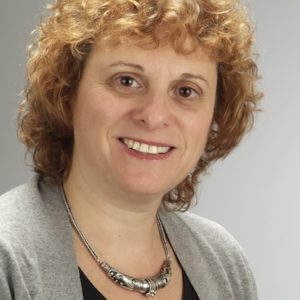IFA Virtual Town Hall Chat Summary 4 September 2020
_____________________________________________________________________________________________
Key Resources
- NGO Committee on Ageing in Geneva
- Office of the High Commissioner for Human Rights
- Office of the Independent Expert on the enjoyment of all human rights by older persons
- ISHR, a practical guide to the UN Special Procedures
- Universal Rights Group, rough guides and databases
- Global Alliance of National Human Rights Institutions (GANHRI)
- Global Alliance on the Rights of Older People (GAROP)
- HelpAge resources on advocacy for a Convention on the rights of older persons
- Open-ended Working Group on Ageing for the purpose of strengthening the protection
of the human rights of older persons - National Public Radio article: How To Care For Older People In The Pandemic (And A Printable Guide!)
- Documentary: An 83-year-old goes undercover in a Chilean nursing home in a warm-hearted and surprising look at age and intimacy
Upcoming Events
- IFA Virtual Town Hall – COVID-19 and Older People: A Canadian Roadmap to Age-Inclusiveness
Friday 11 September 2020 at 7:00 am EDT (Toronto) - German Federal Ministry for Family Affairs, Senior Citizens, Women and Youth; AGE Platform Europe and BAGSO Conference “Strengthening the Rights of Older People in Times of Digitalisation”
28-29 September 2020
Contact Ina Voelcker for information voelcker@bagso.de
- BAGSO Online Seminar “Leaving nobody behind in times of digitalisation: Experiences of older people from across Europe”
24 September 2020
Contact Ina Voelcker for information voelcker@bagso.de
_____________________________________________________________________________________
Speaker Biography
 Ms. Silvia Perel-Levin:
Ms. Silvia Perel-Levin:
Silvia is the Chair of the NGO Committee on Ageing in Geneva and representative to the United Nations (UN) of the International Network for the Prevention of Elder Abuse (INPEA). She has been a member of the steering groups of the Global Alliance for the Rights of Older People (GAROP), the Stakeholder Group on Ageing (SGA) and the Older Persons Partner Constituent Group of UN Habitat. An advocate for a Convention on the rights of older persons, she focuses on age-based discrimination, violence, abuse and neglect of older persons and on the intersections of gender, age and disability.
Silvia has been working in the fields of health, ageing and human rights for over 20 years at the World Health Organization, the Union for International Cancer Control and as a consultant to organizations such as the European Commission and the United Nations Population Fund (UNFPA). At WHO, she managed the first multi-country study on elder abuse working with multiple partners and produced, among other publications, the report ‘Missing Voices, Views of Older Persons on Elder Abuse’. Before that she was a TV, film and theatre producer using the arts as tools for social change.
She was born in Argentina and has lived, studied and worked in England, Israel, Hungary and Switzerland. She has a B.A. in social and educational theatre from Tel Aviv University and an MSc in Inter-Professional Practice from the Institute of Health Sciences of City University of London.
_____________________________________________________________________________________
National Level
- Each country is reviewed by peers regularly during Universal Periodic Reviews, where civil society can participate and provide feedback regarding the national treatment of the rights of older persons.
- In the absence of a National Human Rights Institution (NHRIs) in a particular country, civil society should advocate for one to be established, and should become involved in discussions of the implementation of the treaty bodies’ concluding observations which are the recommendation for a country on the national level.
- Claudia Mahler, the Independent Expert on the enjoyment of all human rights by older persons invites feedback from civil society organizations.
- Since NHRIs have participated in the United Nations’ Open-Ended Working Group on Ageing, has there been progress made towards establishing a convention on the rights of older persons?
Individual and Community Level
- On an individual level it is important to ensure the leadership, self-representation and self-advocacy of older persons in the various networks, coalitions and alliances focusing on ageing.
- How can more older persons and their organizations become involved in the discussion about human rights?
- The pandemic has highlighted concerns in the long-term care and housing sectors. Despite reports being published on these issues pre-pandemic progress has been slow. How can advocacy be catalyzed to advance change?
- Some health care organizations may disagree with COVID-19 policies but do not speak out publicly. When organizations collectively advocate for policy change, they may be more effective in reaching decision-makers.
Tools
- It is essential to find allies in traditional media (in addition to social media) and work collaboratively with journalists to push forward messages regarding the rights of older persons.
- To help civil society organizations in their advocacy efforts, it would be valuable to have a database of organizations that are made up of and represent older persons in each country.


